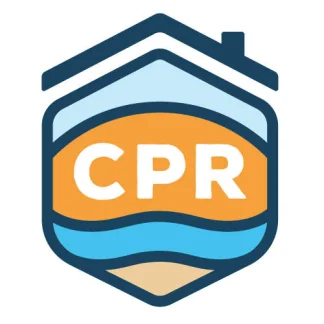Saint Josephs Hospital - Behavioral Health Services
Saint Josephs Hospital – Behavioral Health Services is a private rehab located i...
California Prime Recovery is a drug and alcohol rehab for adults with substance use disorders, situated in Fountain Valley, California. They also provide valuable community resources, including referrals and family support services.
Addiction services offered at California Prime Recovery include mental health assessments, counseling, dual-diagnosis addiction and mental health outpatient program, intensive outpatient, and partial-hospitalization program.
Mental Health Assessment and Counseling Assessments help drug and alcohol counselors to evaluate an individual’s mental health and their substance use disorder, to create an individualized treatment plan. Treatment may involve individual, group, and family counseling services, in addition to other therapeutic interventions.
Dual Diagnosis Addiction & Mental Health Treatment California Prime Recovery offers dual diagnosis treatment using evidence-based practices to treat addiction and mental health diagnoses. They offer programs for adults over 18. Treatment begins with a comprehensive mental health assessment and individualized plan of care. Participants attend individual and group treatment sessions for improved coping skills, peer support, and recovery support meetings. Treatment sessions are held three to four days a week.
Partial Hospitalization Program (PHP) Like other outpatient programs, participants attend individual and group sessions, but do so most days of the week. PHP may be best suited to dual-diagnosis treatments and acute substance use disorders.
Contact us for more information: (844) 349-0077

Connect with California Prime Recovery by calling their admissions team directly.
(844) 349-0077 Website Get DirectionsExperiential therapy is a form of therapy in which clients are encouraged to surface and work through subconscious issues by engaging in real-time experiences. Experiential therapy departs from traditional talk therapy by involving the body, and having clients engage in activities, movements, and physical and emotional expression. This can involve role-play or using props (which can include other people). Experiential therapy can help people process trauma, memories, and emotion quickly, deeply, and in a lasting fashion, leading to substantial and impactful healing.
Group therapy is any therapeutic work that happens in a group (not one-on-one). There are a number of different group therapy modalities, including support groups, experiential therapy, psycho-education, and more. Group therapy involves treatment as well as processing interaction between group members.
In individual therapy, a patient meets one-on-one with a trained psychologist or counselor. Therapy is a pivotal part of effective substance abuse treatment, as it often covers root causes of addiction, including challenges faced by the patient in their social, family, and work/school life.
Life skills trainings involve all the skills a person must have in order to function successfully in the world. These include time management, career guidance, money management, and effective communication. Truly successful addiction recovery is based on the ability to not only live substance-free, but to thrive. Life skills teaches the practical necessities of functioning in society, which sets clients up for success in life, and therefore sobriety.
Group therapy is any therapeutic work that happens in a group (not one-on-one). There are a number of different group therapy modalities, including support groups, experiential therapy, psycho-education, and more. Group therapy involves treatment as well as processing interaction between group members.
In individual therapy, a patient meets one-on-one with a trained psychologist or counselor. Therapy is a pivotal part of effective substance abuse treatment, as it often covers root causes of addiction, including challenges faced by the patient in their social, family, and work/school life.
Life skills trainings involve all the skills a person must have in order to function successfully in the world. These include time management, career guidance, money management, and effective communication. Truly successful addiction recovery is based on the ability to not only live substance-free, but to thrive. Life skills teaches the practical necessities of functioning in society, which sets clients up for success in life, and therefore sobriety.
In individual therapy, a patient meets one-on-one with a trained psychologist or counselor. Therapy is a pivotal part of effective substance abuse treatment, as it often covers root causes of addiction, including challenges faced by the patient in their social, family, and work/school life.
Life skills trainings involve all the skills a person must have in order to function successfully in the world. These include time management, career guidance, money management, and effective communication. Truly successful addiction recovery is based on the ability to not only live substance-free, but to thrive. Life skills teaches the practical necessities of functioning in society, which sets clients up for success in life, and therefore sobriety.
Life skills trainings involve all the skills a person must have in order to function successfully in the world. These include time management, career guidance, money management, and effective communication. Truly successful addiction recovery is based on the ability to not only live substance-free, but to thrive. Life skills teaches the practical necessities of functioning in society, which sets clients up for success in life, and therefore sobriety.
Saint Josephs Hospital – Behavioral Health Services is a private rehab located i...
Hotel California by the Sea - 17th Street is dedicated to provide outpatient ser...
Yellowstone Recovery is a nonprofit drug and alcohol addiction recovery center i...
School Ten provides individuals high quality counseling, education and rehabilit...